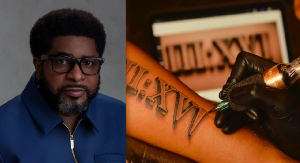Nigerians must remember that Ironsi did not govern alone Ironsi had the purest of intentions, perhaps he was naive but to accuse him of wanting to enthrone Igbo dominance and that he colluding with the January 15th coupists is the gravest of injustices done to the memory of a man who simply wanted the best of the July 29th coup justify the coup with a number of reasons. First, they was so brutally killed by soldiers from a particular section of Nigeria.
The story goes as this. With Nigeria’s First Republic going through the throes of multiple but self inflicted crises, a few military officers, young and full of ideas flirted with the idea of restoring sanity into the country’s political space through the use of force to shoot their way into relevance and much obtain the obedience of the nation. Like every idea, this one hardened into some concrete plan and was given the name Operation Damisa. D-Day saw the January 15 boys strike, leaving in its wake the demise of several leaders of the First Republic. The coup, nationalistic in its agenda was highly successful in the North but failed woefully in the South, this was simply due to the timely and courageous reaction of the General Ironsi, who refused to accede to the demands of Nzeogwu and co. Rallying loyal troops to his side, Ironsi outwitted and arrested the mutinous officers dealing the coup a fatal blow, since Lagos and not Kaduna was actually the seat of power, Major Chukwuma Kaduna Nzeogwu leader of the coup had but no choice but to surrender to Ironsi.
The Nigerian Senate at that point in time did hand over Ironsi, who immediately settled down to fix the nation’s troubles. Possessing the best of intentions for Nigeria, Ironsi identified Nigeria’s biggest problem as tribalism and sought much to end the trend, it is important to note that his maiden address to the nation ended like this, Nigerians simply want an end to tribalism.
Assembling minds and a number of stakeholders to carefully study the Nigerian nation vis a vis its existing systems and the prevailing dynamics then, the committee did recommend the abrogation of regions and the creation of a unitary system, where every Nigerian would see himself as a Nigerian even if they were in places outside their own regions of origin. Thus a Hausa man would be at home in Orofia, Abagana , work there, live there and even marry his statutory number of four wives from my home town if he so desired. He could even become a DG or Perm Sec in Enugu, contributing his quota for the overall development of Nigeria. This was Ironsi’s vision for Nigeria. Laudable one might say.
Ironsi, the soldier democrat unlike other military dictators who would have just announced such a policy without discussing it with fellow members of his ruling council, presented the document to the council, seeking their own input into such a document. No member of his council spurned the idea; none presented even the feeblest of opposition to the proposal, like lizards they simply nodded in agreement to the policy. You might think that Ironsi’s Supreme Millitary Council must have been lopsided, having more Igbos than other ethnic groups in its membership, no! Ironsi had more Northerners and Yorubas than Igbos in the council; members of this council did include Yakubu Gowon, then his Chief of Defence Staff, who was later to share complicity in the tragedy that befell Ironsi.
Ironsi, not satisfied with the consent of his council alone sought to engage the nation on his proposal, he began a tour of the country, visiting the various regions and listening to the input of its stakeholders, General Ironsi finally landed in the Western Region, it was here that the infamy of July 29, 1966 took place, Ironsi was abducted alongside his host, Colonel Adekunle Fajuyi, the duo were then dispatched by bursts of a sten gun.
Suddenly, the likes of Gowon, Kam Salem, Hassan Kastina and Alhaji
Yesufu, found their voices, whilst trying to justify the coup, Gowon who was later to succeed Ironsi pitched the idea that Ironsi’s unification decree was never agreed upon and that it was an attempt to entrench an Igbo hegemony upon Nigeria, only for the same Gowon to do a summersault and implement a faulty version of what Ironsi had in mind, one that propped a Northern hegemony. Gowon and other prime members of the coup then began to plant canards against Ironsi in their bid to vilify him and portray him as an ineffective leader.
But was Ironsi really an ineffective leader? History says no! A close examination of his 194 days in office very much reflects this view for under General Ironsi the issue of fundamental human rights, freedom of expression and conscience were very much upheld under Decree No. 1 which suspended the Constitution but left intact the sections that dealt with these freedoms.
Asides that, the Ironsi regime also repudiated Decree No 2 or the Circulation of Newspaper Decree put in place by the Balewa administration to curtail press freedoms. Ironsi favoured a free press and encouraged it.
Nigerian today remains a hot bed for all forms of crisis, senseless events that have long consumed millions of lives and properties, events that have carved scars upon our people. Year in, year out, governments have constituted high powered committees to look at means of preventing reoccurrences yet the next wave of terror that comes makes past occurrences a child’s play. Some have it that what obtains in Nigeria is simply what we call the clash of civilizations as popularized by Prof. Samuel P. Huntington , some scholars have attempted to link it with the ongoing crisis in Jos and other parts of the North, I simply disagree and state clearly that Nigeria today would not have experienced these set of crises and her interests would supersede ethnic affiliations and tribal loyalties the melting point would have been Ironsi’s felt was Decree No 34, which in all sought to make the Nigerian Civil Service as one institution. Ironsi’s train of thought was simply moving in the direction where every Nigerian was or would be free to work and live where he wanted or where duty called. Thus a Tiv man could work in Enugu and discharge his duties to the nation as a true Nigerian, while a Yoruba man would not feel out of place working in Maiduguri.
Ironsi was the last of statesmen, who served selflessly and refused to enrich himself with the commonwealth of ours, he was the last of leaders who did not own hilltop mansions, hotels, banks, it is reported that following his demise, his killers rushed to his bank to identify how much wealth he had stashed there perhaps to use the startling amount as one of their many excuses for toppling Ironsi, to their chagrin they met a paltry sum of six Pounds and ten Shillings, this put an end to their corruption story.
General Aguiyi Ironsi was a great man born to a great nation but his vision of unifying our nation during the height of our ugly human emotions remains a legacy for future Nigerians be ye Hausa, Igbo, Yoruba or Tiv, a legacy that was jettisoned, little wonder peace eludes our country today. His ideas still echo today, his voice towers above others, one that some of our founding fathers could not surpass.
Opinions of Sunday, 15 August 2021
Columnist: Igboeli Arinze















